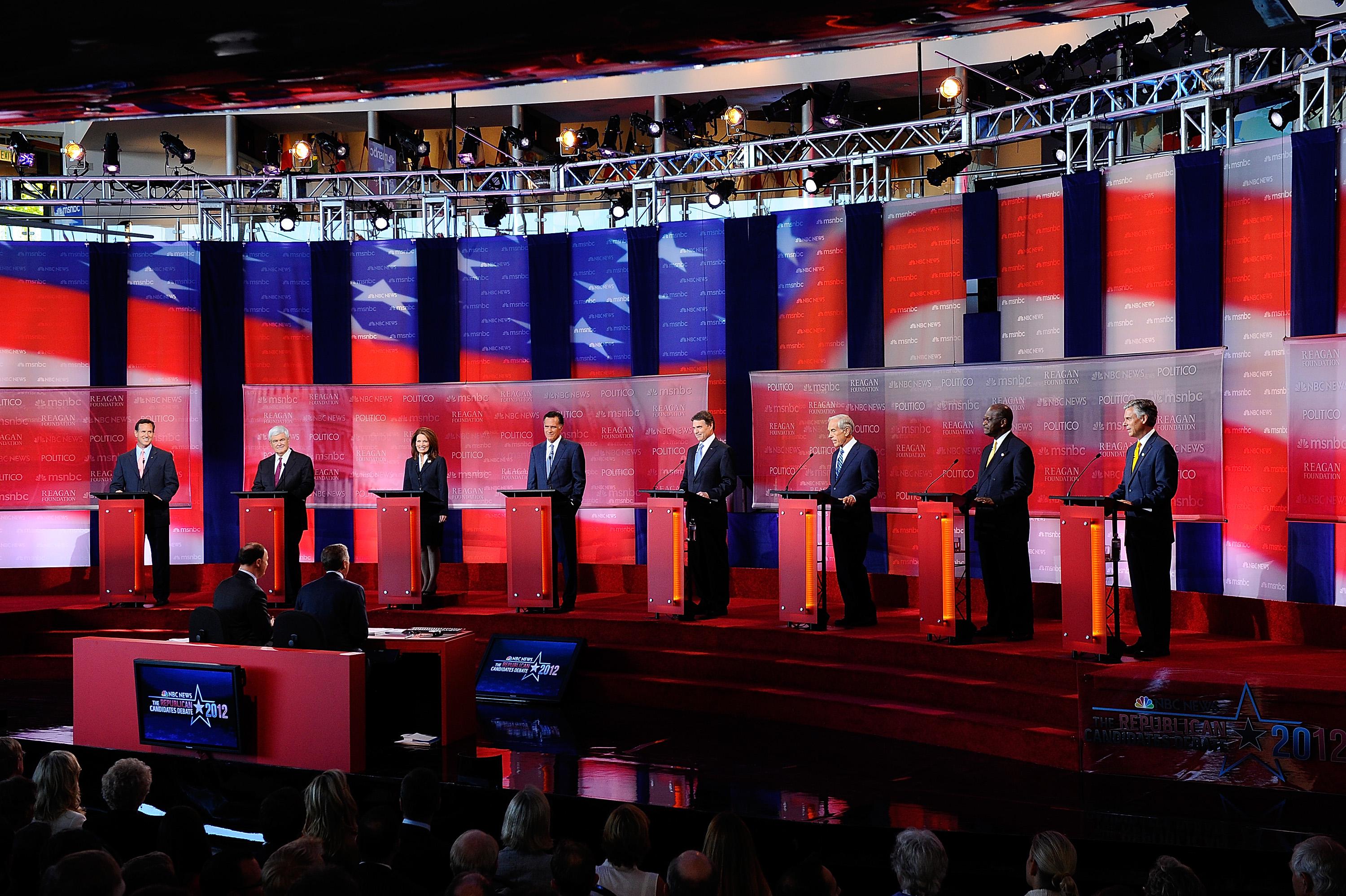The most actionable item in the RNC’s hand-wringing report is one that would give Republicans less time on TV. There’s even a chart demonstrating that a surging number of debates has coincided with lost elections.
 “The number of debates should be reduced by roughly half,” write the GOP team, “to a still robust number of approximately 10 to 12, with the first occurring no earlier than September 1, 2015, and the last ending just after the first several primaries (February – March 2016).”
This echoes something Republicans were complaining about as soon as the 2012 debates ended. I remember talking to Romney strategist Stu Stevens after the pre-Michigan/Arizona primary debate, in sunny Mesa, about how the party could never again indulge all these media organizations by yapping in their dog-and-pony shows. Priebus had been hitting the same drum in his reform media blitz. “We just can’t have MSNBC, you know, hosting a debate at the Reagan Library,” he said, “only to have their network comment—you know, make the commentary afterwards for three hours about the debate of the Republican Party. I mean, it’s ridiculous.”
“The number of debates should be reduced by roughly half,” write the GOP team, “to a still robust number of approximately 10 to 12, with the first occurring no earlier than September 1, 2015, and the last ending just after the first several primaries (February – March 2016).”
This echoes something Republicans were complaining about as soon as the 2012 debates ended. I remember talking to Romney strategist Stu Stevens after the pre-Michigan/Arizona primary debate, in sunny Mesa, about how the party could never again indulge all these media organizations by yapping in their dog-and-pony shows. Priebus had been hitting the same drum in his reform media blitz. “We just can’t have MSNBC, you know, hosting a debate at the Reagan Library,” he said, “only to have their network comment—you know, make the commentary afterwards for three hours about the debate of the Republican Party. I mean, it’s ridiculous.”
I wonder whether the solution will be somewhere between those poles—the 20 debates and the 10. In 2007, Democratic activists pressured candidates to bail on any debates sponsored by Fox News. They succeeded, and while the candidates took some flack for being “extreme,” voters didn’t really care. You can imagine Republican candidates being encouraged by the base to skip an MSNBC debate, while the RNC hooks up a Univision forum and gets far more positive coverage for “putting themselves out there.”
Why Republicans Want to Cut the Number of Primary Debates in Half

Photo by Kevork Djansezian/Getty Images
Advertisement